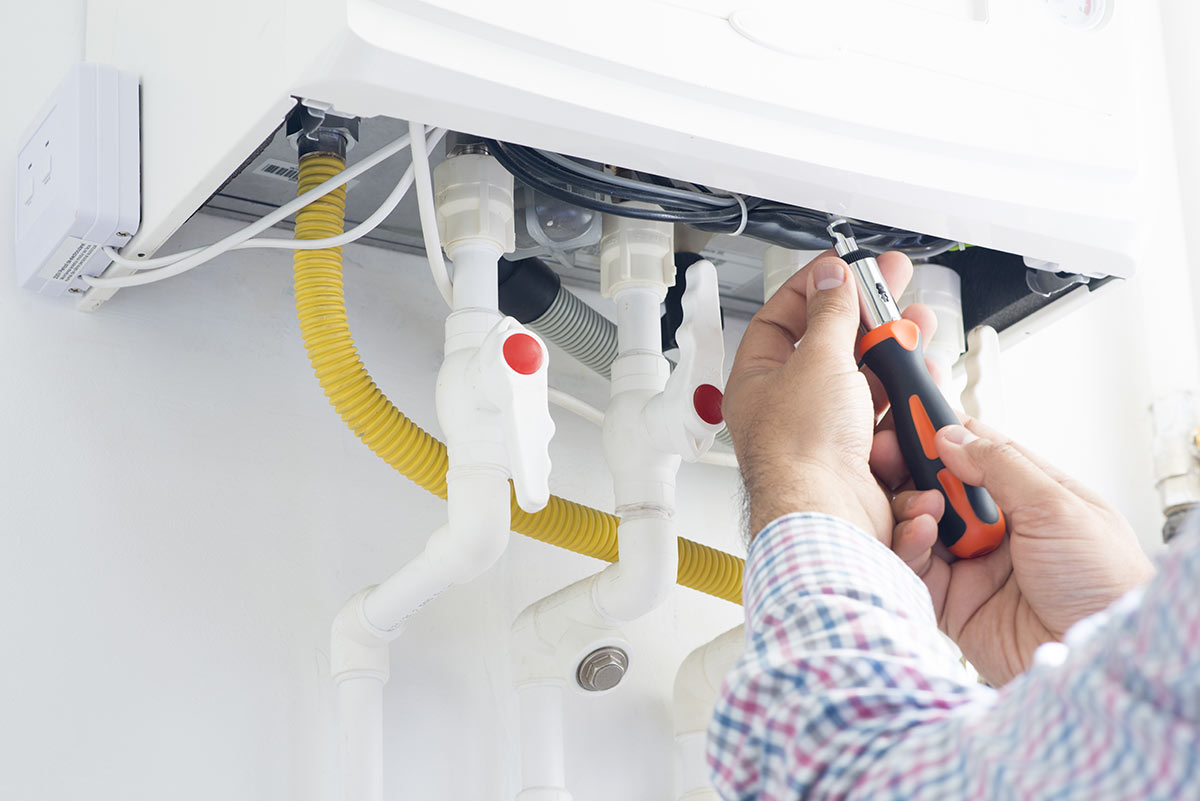Leaking
Boiler leak issues can be caused by internal components of the boiler such as pressure valve or pump seal. If the leak is from the pressure relief valve the system’s pressure has likely become too high. However, if the leak is related to a problem with the pump seal, this is an indication that the seal is worn out. A leak that is developed around the pipework of the system can be caused by corrosion.
It is always recommended to consult an engineer to help identify and fix the issue as there can sometimes be an issue with the way the system has been installed, if the fault is serious the engineer may recommend having a new boiler installed.
Low Boiler Pressure
If your boiler pressure is below 1 bar this means that your boiler will not be able to function properly, ideally, your boiler pressure should be set at 1.5 bar.
Low boiler pressure can be an indication of a system leak, recently bled radiators or a failed component or seal. To help identify the issue you can look for visible signs of a leak and if you discover signs of a leak, it is recommended that you contact a gas safe engineer to help locate the leak alternatively if you do not find a leak you can try re-pressurising the boiler if you feel comfortable in doing so.
Radiator faults
Cold patched on radiators can be caused by a build-up of air or sludge inside radiators, this can cause the heat to distribute unequally inside the radiators. Most radiators issues such as this one can be resolved simply by bleeding a radiator.
Boiler Noises
It is completely normal for your boiler to make noises, especially when it is firing up. However, if your boiler starts to make gurgling, banging or whistling noises this can be an indication that you need a qualified engineer to come out and inspect this as this can be caused nu air in the system, a faulty pump, low water pressure or even a build-up of limescale which is known as “kettling”.


